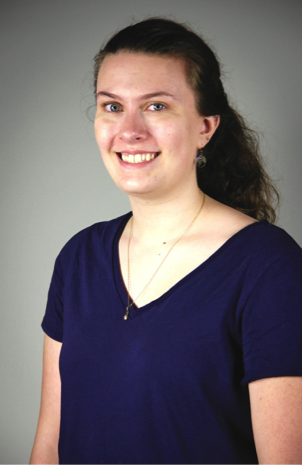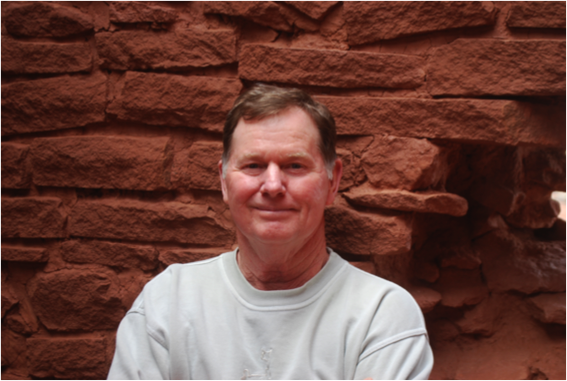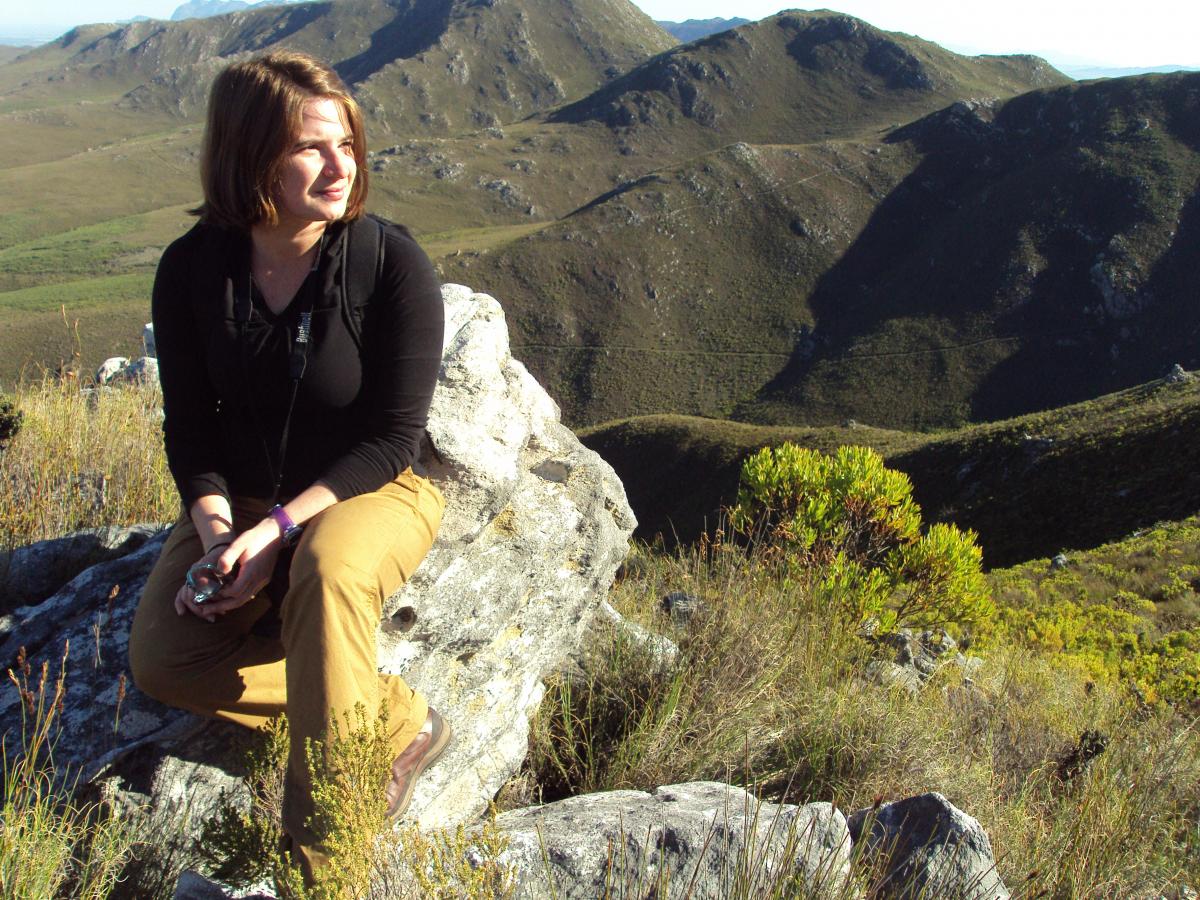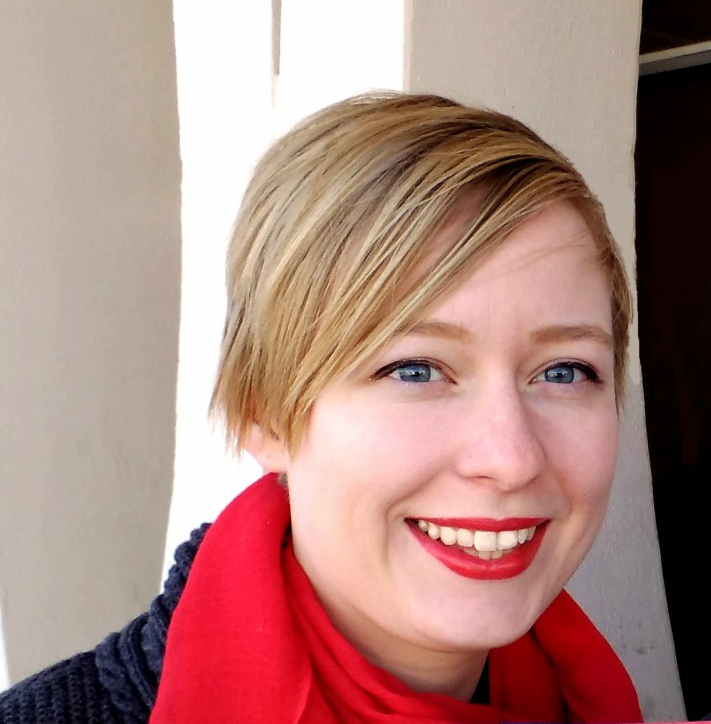Society Fellows & Awards
2017 Society Awards
Undergraduate Ethnobiologist Award: Hope Loiselle
 Hope Loiselle is a junior at the University of Maryland studying anthropology and archaeology. Her research interests include zooarchaeology, historical ecology, and island and coastal archaeology. She hopes to pursue graduate studies in archaeology with a regional focus in the Pacific and study past human interactions with marine ecosystems. Currently, she is completing her honors thesis under the guidance of Torben Rick at the Smithsonian Institution’s National Museum of Natural History, conducting a zooarchaeological analysis of small cetacean bone from Seaside, Oregon. She is also working with Miguel Vilar, lead scientist of National Geographic’s Genographic Project, to study the peopling of Micronesia from a genetic perspective. She studied abroad in New Zealand last semester, where her passion for Pacific archaeology first developed. Her love of zooarchaeology started as a sophomore when she began working in the UMD Zooarchaeology Lab under the guidance of George Hambrecht and Barnet Pavao-Zuckerman. Hope is also the president of the undergraduate Anthropology Student Association.
Hope Loiselle is a junior at the University of Maryland studying anthropology and archaeology. Her research interests include zooarchaeology, historical ecology, and island and coastal archaeology. She hopes to pursue graduate studies in archaeology with a regional focus in the Pacific and study past human interactions with marine ecosystems. Currently, she is completing her honors thesis under the guidance of Torben Rick at the Smithsonian Institution’s National Museum of Natural History, conducting a zooarchaeological analysis of small cetacean bone from Seaside, Oregon. She is also working with Miguel Vilar, lead scientist of National Geographic’s Genographic Project, to study the peopling of Micronesia from a genetic perspective. She studied abroad in New Zealand last semester, where her passion for Pacific archaeology first developed. Her love of zooarchaeology started as a sophomore when she began working in the UMD Zooarchaeology Lab under the guidance of George Hambrecht and Barnet Pavao-Zuckerman. Hope is also the president of the undergraduate Anthropology Student Association.
Distinguished Ethnobiologist Award: Steve Emslie and Steve Weber
 Dr. Steve Emslie is a professor in the Department of Biology and Marine Biology, University of North Carolina Wilmington, where he has taught courses in ornithology and ecology since 1998. He received his BA and MA degrees in Anthropology from the University of Colorado, Boulder, in 1975 and 1977, respectively, an MS degree in Biology from Northern Arizona University in 1982, and a PhD in Zoology from the University of Florida in 1987. He has maintained an interdisciplinary research program his entire career and first became involved in ethnobiology when completing his MA thesis on faunal remains from archaeological sites in southwestern Colorado. He worked with Dr. Lyn Hargrave, an eminent archao-ornithologist, from 1977-1978 and organized the First Ethnobiology Conference that was held in Lyn's honor in Prescott, Arizona, in April 1978. With Steve Weber, he initiated and edited the first two volumes of the Journal and Ethnobiology in 1981-1983, and they also founded the Society of Ethnobiology in 1981. Steve has studied fossil and archaeological birds and mammals throughout his career and has published over 130 peer-reviewed papers and one monograph. He currently is studying the paleo-history of penguins in Antarctica, using archaeological methodology to recover well-presereved penguin remains that date to over 40,000 years old. He also maintains his archaeological interests with collaborative research on Neolithic sites in Iberia where he is investigating mercury exposure from the cultural use of cinnabar.
Dr. Steve Emslie is a professor in the Department of Biology and Marine Biology, University of North Carolina Wilmington, where he has taught courses in ornithology and ecology since 1998. He received his BA and MA degrees in Anthropology from the University of Colorado, Boulder, in 1975 and 1977, respectively, an MS degree in Biology from Northern Arizona University in 1982, and a PhD in Zoology from the University of Florida in 1987. He has maintained an interdisciplinary research program his entire career and first became involved in ethnobiology when completing his MA thesis on faunal remains from archaeological sites in southwestern Colorado. He worked with Dr. Lyn Hargrave, an eminent archao-ornithologist, from 1977-1978 and organized the First Ethnobiology Conference that was held in Lyn's honor in Prescott, Arizona, in April 1978. With Steve Weber, he initiated and edited the first two volumes of the Journal and Ethnobiology in 1981-1983, and they also founded the Society of Ethnobiology in 1981. Steve has studied fossil and archaeological birds and mammals throughout his career and has published over 130 peer-reviewed papers and one monograph. He currently is studying the paleo-history of penguins in Antarctica, using archaeological methodology to recover well-presereved penguin remains that date to over 40,000 years old. He also maintains his archaeological interests with collaborative research on Neolithic sites in Iberia where he is investigating mercury exposure from the cultural use of cinnabar.
 Dr Steve Weber is a professor in the Department of Anthropology at Washington State University at Vancouver. He received a B.S. and M.A. in Anthropology from Northern Arizona University. After working several years as a consulting archaeologist, Steve returned to graduate school at the University of Pennsylvania where he received his Ph.D. in 1989. The theme of his research has continued to be how and why people adopt new subsistence strategies, and how change in subsistence systems relates to change in material culture and settlement systems.
Dr Steve Weber is a professor in the Department of Anthropology at Washington State University at Vancouver. He received a B.S. and M.A. in Anthropology from Northern Arizona University. After working several years as a consulting archaeologist, Steve returned to graduate school at the University of Pennsylvania where he received his Ph.D. in 1989. The theme of his research has continued to be how and why people adopt new subsistence strategies, and how change in subsistence systems relates to change in material culture and settlement systems.
With colleague Steve Emslie, he co-founded the Society of Ethnobiology and the Journal of Ethnobiology in order to promote the interdisciplinary study of human interaction with the natural environment. He remains committed to promoting the creative fusion of biological and anthropological approaches to the study of humans and their surroundings. Since arriving at WSU-Vancouver in 1994, he has been involved in projects throughout Asia, including India, Pakistan, and Thailand. He maintains a special interest in paleoethnobotany, but regards himself first and foremost as a field-oriented archaeologist.
2017 Graduate Research Fellowships
 As an ecological anthropologist and ethnoprimatologist, Amanda’s research interests center on niche construction, primate behavioral ecology and behavioral flexibility, peoples’ attitudes and experiences with animals and the environment, social network analysis, human-animal-environment relationships, and conservation and management strategies to promote coexistence between people and nonhuman primates. The Urban Ethnobiology Fellowship will support her doctoral research to examine how human niche construction, via cultural behaviors and ecological impacts, influence chacma baboon foraging and social relationships in Western Cape, South Africa. Amanda’s research supports a broader perspective of community ecology by investigating how humans and animal mutually shape each other’s ecological and social environments.
As an ecological anthropologist and ethnoprimatologist, Amanda’s research interests center on niche construction, primate behavioral ecology and behavioral flexibility, peoples’ attitudes and experiences with animals and the environment, social network analysis, human-animal-environment relationships, and conservation and management strategies to promote coexistence between people and nonhuman primates. The Urban Ethnobiology Fellowship will support her doctoral research to examine how human niche construction, via cultural behaviors and ecological impacts, influence chacma baboon foraging and social relationships in Western Cape, South Africa. Amanda’s research supports a broader perspective of community ecology by investigating how humans and animal mutually shape each other’s ecological and social environments.Ecological Knowledge Research Fellow: Nicole Mathwich
 Nicole pursues her research interests in the intersections of ecology and colonialism at the University of Arizona and the Arizona State Museum. For her PhD research, Nicole investigates how indigenous peoples in southern Arizona and northern Sonora negotiated the colonial introduction of livestock into their own preexisting practices of agriculture, hunting, and gathering. Her research will examine seasonal livestock grazing and watering in the Sonoran Desert using stable isotopes, and shifts in hunting patterns as a result of ranching by using zooarchaeological analysis. Funds from the Ecological Knowledge Research Fellowship will be used to conduct stable isotope analysis of cattle and sheep teeth from Spanish colonial sites.
Nicole pursues her research interests in the intersections of ecology and colonialism at the University of Arizona and the Arizona State Museum. For her PhD research, Nicole investigates how indigenous peoples in southern Arizona and northern Sonora negotiated the colonial introduction of livestock into their own preexisting practices of agriculture, hunting, and gathering. Her research will examine seasonal livestock grazing and watering in the Sonoran Desert using stable isotopes, and shifts in hunting patterns as a result of ranching by using zooarchaeological analysis. Funds from the Ecological Knowledge Research Fellowship will be used to conduct stable isotope analysis of cattle and sheep teeth from Spanish colonial sites.